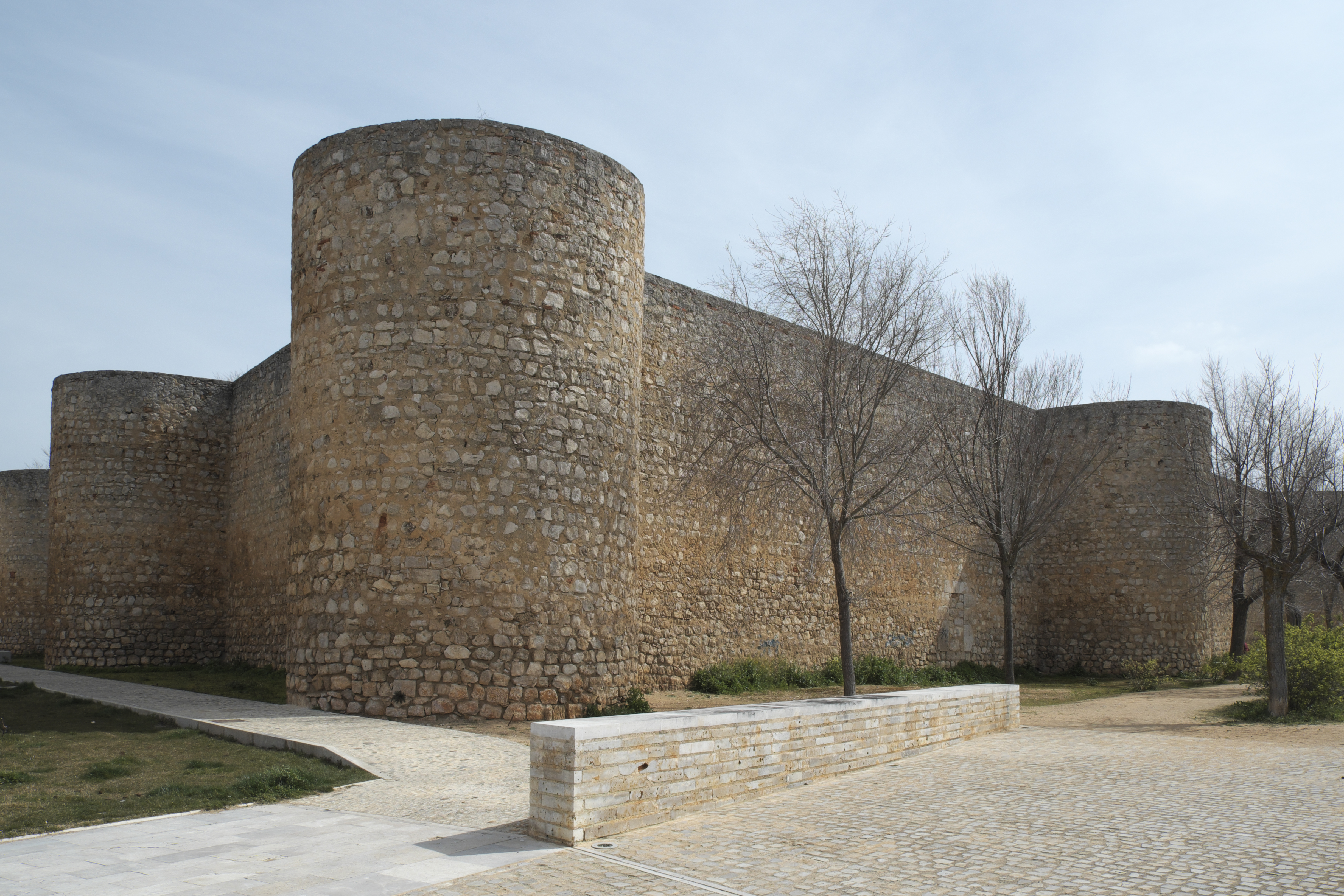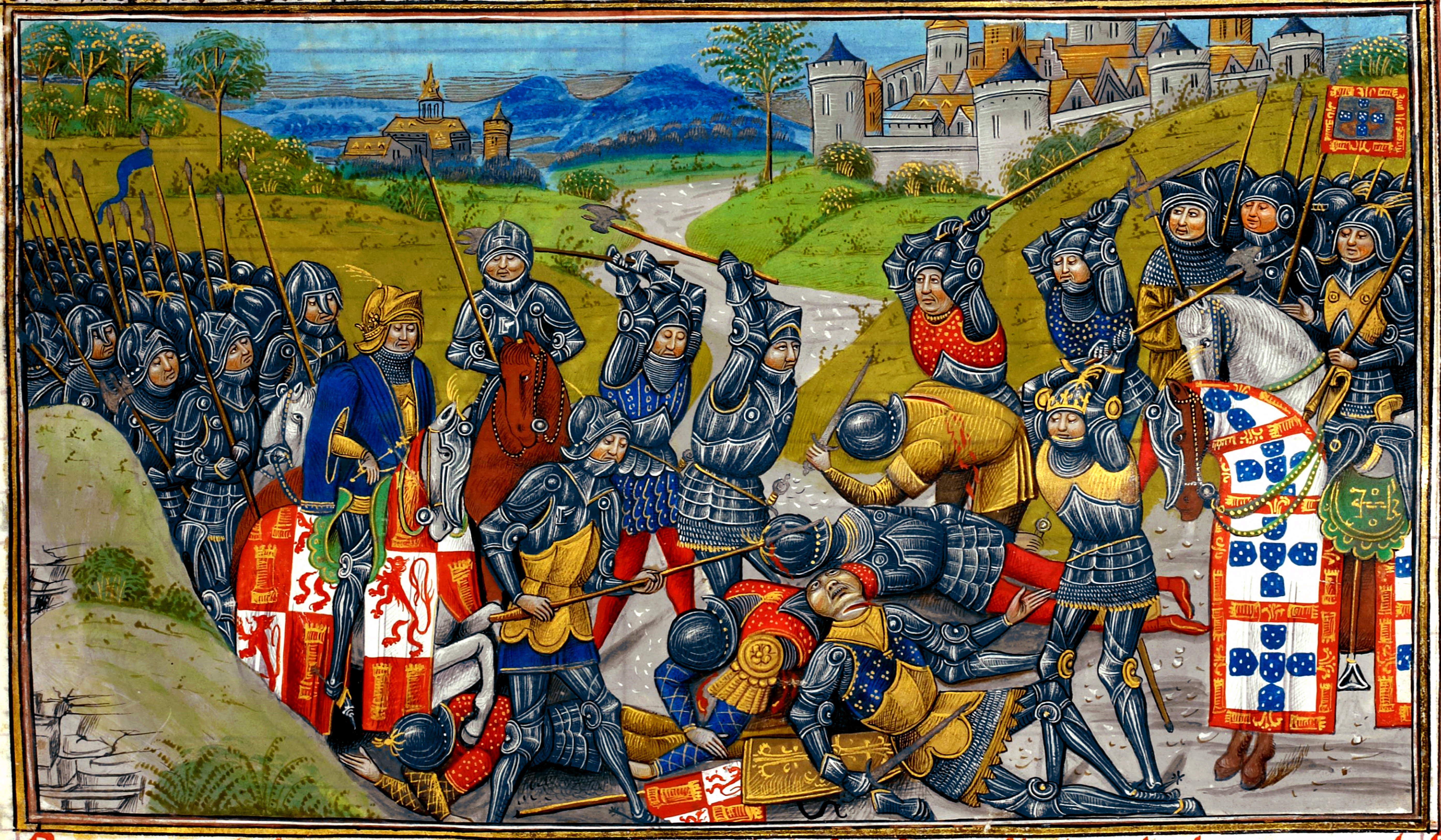|
Count Of Barcelos
Count of Barcelos (in Portuguese ''Conde de Barcelos'') is a title of nobility, the first to be granted in Portugal. It was created in 1298 by king Denis I and initially it was a non hereditary title, although most of the holders belonged to the Teles de Menezes family. It was only after the death of the 6th Count, when it was granted to Nuno Álvares Pereira, that the title became hereditary. The 8th Count of Barcelos was created Duke of Braganza in 1442, by his nephew king Afonso V, and his descendants rose to the Portuguese throne after the country regained its independence from Spain in 1640. Initially, the seat of the Counts of Barcelos was the Castle of Barcelos, a large medieval structure that overlooks the Cávado river. After having been granted the Dukedom of Braganza, the family moved to a larger and more urbane palace in Guimarães. The title is currently held by Duarte Pio, Duke of Braganza and 31st Count of Barcelos, claimant to the throne of Portugal. List ... [...More Info...] [...Related Items...] OR: [Wikipedia] [Google] [Baidu] |
Pedro Afonso, Count Of Barcelos
Pedro Afonso, Count of Barcelos (before 1289 – May 1350), was an illegitimate son of King Denis of Portugal and Grácia Frois. He was made the 3rd Count of Barcelos on 1 May 1314. Biography Much like the other illegitimate children of King Denis, Pedro Afonso was raised by Queen Elizabeth of Portugal along with his half-brothers and -sisters at court. The children were sent at an early age to live there as a political, not charitable necessity, as they were seen as a method of cementing alliances and creating a network of influence within the courts of Europe. King Denis in his October 1298 will stated that the Queen would specifically administer and instruct his illegitimate children, and provided that they would be disinherited if they were to dishonour or disobey the authority of Infante Afonso. The Count always counted on the protection and support of his father, receiving dominion over lands in Lisbon, Estremoz, Evoramonte, Sintra and Tavira, among others. He soon beca ... [...More Info...] [...Related Items...] OR: [Wikipedia] [Google] [Baidu] |
Portuguese Royal Houses
Portuguese may refer to: * anything of, from, or related to the country and nation of Portugal ** Portuguese cuisine, traditional foods ** Portuguese language, a Romance language *** Portuguese dialects, variants of the Portuguese language ** Portuguese man o' war, a dangerous marine cnidarian that resembles an 18th-century armed sailing ship ** Portuguese people, an ethnic group See also * * ''Sonnets from the Portuguese'' * "A Portuguesa", the national anthem of Portugal * Lusofonia * Lusitania Lusitania (; ) was an ancient Iberian Roman province located where modern Portugal (south of the Douro river) and a portion of western Spain (the present Extremadura and the province of Salamanca) lie. It was named after the Lusitani or Lu ... * {{disambiguation Language and nationality disambiguation pages ... [...More Info...] [...Related Items...] OR: [Wikipedia] [Google] [Baidu] |
Duke Of Barcelos
Duke is a male title either of a monarch ruling over a duchy, or of a member of royalty, or nobility. As rulers, dukes are ranked below emperors, kings, grand princes, grand dukes, and sovereign princes. As royalty or nobility, they are ranked below princess nobility and grand dukes. The title comes from French ''duc'', itself from the Latin '' dux'', 'leader', a term used in republican Rome to refer to a military commander without an official rank (particularly one of Germanic or Celtic origin), and later coming to mean the leading military commander of a province. In most countries, the word ''duchess'' is the female equivalent. Following the reforms of the emperor Diocletian (which separated the civilian and military administrations of the Roman provinces), a ''dux'' became the military commander in each province. The title ''dux'', Hellenised to ''doux'', survived in the Eastern Roman Empire where it continued in several contexts, signifying a rank equivalent to a captain ... [...More Info...] [...Related Items...] OR: [Wikipedia] [Google] [Baidu] |
Dukes Of Braganza
The title Duke of Braganza ( pt, Duque de Bragança) in the House of Braganza is one of the most important titles in the peerage of Portugal. Starting in 1640, when the House of Braganza acceded to the throne of Portugal, the male heir of the Portuguese Crown were known as Duke of Braganza, along with their style Prince of Beira or (from 1645 to 1816) Prince of Brazil. The tradition of the heir to the throne being titled Duke of Braganza was revived by various pretenders after the establishment of the Portuguese Republic on 5 October 1910 to signify their claims to the throne. History of Dukedom Feudal dukes The Duke of Braganza holds one of the most important dukedoms in Portugal, see Duchy of Braganza (''Bragança''). Created in 1442 by King Afonso V of Portugal for his uncle Afonso, Count of Barcelos (natural son of King John I of Portugal), it is one of the oldest fiefdoms in Portugal. The fifth Duke of Braganza (Teodósio I, b. 1510) is especially important to hist ... [...More Info...] [...Related Items...] OR: [Wikipedia] [Google] [Baidu] |
Afonso, Duke Of Braganza
Dom Afonso I of Braganza (; 10 August 1377 – 15 December 1461) was the first duke of Braganza and the eighth count of Barcelos. He founded the House of Braganza, the most powerful and wealthy dynasty in Portugal. His descendants became high-ranking nobles, imperial officials, and finally kings of Portugal and emperors of Brazil. Early life Historians believe he was born in Veiros, Estremoz, Alentejo, as a natural son of Portuguese King John I and Inês Peres.She is sometimes said to be the daughter of a Jewish cobbler (Isabel Violante Pereira, De Mendo da Guarda a D. Manuel I, Lisboa, 2001, Livros Horizonte), but the Nobiliaries make her born at Borba, sister of Gil Peres and daughter of Pero Esteves, o Barbadão, of an old Portuguese noble family, akin to the ''Pinheiro'' family, and wife Maria Anes. He married the heiress Beatriz Pereira de Alvim, daughter of Nuno Álvares Pereira, a general and the wealthiest man in the kingdom. A traveled and cultivated man, Afonso w ... [...More Info...] [...Related Items...] OR: [Wikipedia] [Google] [Baidu] |
Leonor Teles
Leonor Teles (or Teles de Meneses; ) was queen consort of Portugal by marriage to King Ferdinand I, and one of the protagonists, along with her brothers and her daughter Beatrice, of the events that led to the succession crisis of 1383–1385, which culminated in the defeat of her son-in-law King John I of Castile and his armies in the Battle of Aljubarrota. Called "the Treacherous" (''a Aleivosa'' in Portuguese) by her subjects, who execrated her on account of her adultery and treason to her native country, she was dubbed by the historian Alexandre Herculano as "the Portuguese Lucrezia Borgia". Life Birth and childhood The date or place of Leonor's and her siblings' birth is not recorded in any document. According to some sources, she was born in Trás-os-Montes because King Ferdinand I on 3 January 1375 donated Vila Real to his wife "for being a native of the province of Tralosmontes". If so, she would be the first queen of Portugal born in that country. Yet, her paren ... [...More Info...] [...Related Items...] OR: [Wikipedia] [Google] [Baidu] |
Martim Afonso Telo De Meneses
Martim Afonso Telo de Meneses (died in Toro, 26 January 1356), was a Portuguese nobleman, member of the Téllez de Meneses lineage, and the father of Leonor Teles, queen consort of Portugal. His parents were Afonso Telles de Meneses, called ''el Raposo'' (the Fox), vassal of King Afonso IV of Portugal, and Berengáira Lourenço de Valadares, daughter of Lourenço Soares de Valadares and Sancha Nunes de Chacím. Biography Martim Afonso was the ''Mayordomo'' of Maria of Portugal, the wife of King Alfonso XI of Castile and mother of the only surviving son of this marriage, Peter of Castile. On 16 January 1356, he and several nobles were at the Alcázar de Toro with the queen when King Peter of Castile arrived, accompanied by several squires, entered the grounds of the fortress and ordered the assassination of several of the men who were there with the queen, including Martim. Pero López de Ayala in his chronicles describes the events as follow: Marriage and issue Martim ... [...More Info...] [...Related Items...] OR: [Wikipedia] [Google] [Baidu] |
João Afonso Telo, 6th Count Of Barcelos
João Afonso Telo, (died on 14 August 1385 in the Battle of Aljubarrota), mayor of Lisbon in 1372, admiral of Portugal from 13751376, and sixth Count of Barcelos, was a member of the highest ranks of the nobility, member of the Téllez de Meneses lineage as a descendant of Tello Pérez de Meneses. Family relations He was the son of Martim Afonso Telo de Meneses — '' mayordomo mayor'' of Maria of Portugal, queen consort as the wife of King Alfonso XI of Castile — who was killed in 1356 following the orders of King Peter of Castile. His mother was Aldonça Anes de Vasconcelos, daughter of João Mendes de Vasconcelos, '' Alcalde'' of Estremoz, and Aldara Alfonso Alcoforado. He had one brother, Gonçalo Teles de Meneses, Count of Neiva and Lord of Faria, and two sisters, Maria Teles, murdered by her second husband, John, and Leonor Teles, queen consort by her marriage with King Ferdinand I of Portugal. He also had a half-sister, Joana Teles de Meneses, the wife of Juan Alf ... [...More Info...] [...Related Items...] OR: [Wikipedia] [Google] [Baidu] |
Count Of Ourém
Count of Ourém (in Portuguese ''Conde de Ourém'') is a Portuguese title granted in 1370 by King Fernando I of Portugal, to ''Dom'' João Afonso Telo, uncle of Queen Leonor Teles. Later he also became the fourth Count of Barcelos. The title subsequently passed to Juan Fernández Andeiro (a Galician noble, lover of the Queen), but when King John I of Portugal seized the throne, his Constable, Nuno Álvares Pereira, inherited it. When the Constable's daughter married the first Duke of Braganza, ''Count of Ourém'' became a subsidiary title of the House of Braganza. In 1483, Fernando II, third Duke of Bragança, was condemned for treason by order of king John II of Portugal. The House of Braganza estates were confiscated and the Condado of Ourém was granted to Pedro de Menezes, 1st Count of Vila Real, grandson of João Afonso Telo, 1st Count of Ourém. When king Manuel I inherited the Portuguese throne, he restored the Braganzas with all their previous honours, and from t ... [...More Info...] [...Related Items...] OR: [Wikipedia] [Google] [Baidu] |
João Afonso Telo, 4th Count Of Barcelos
João Afonso Telo de Menezes (died 1381){{Sfn, Braamcamp Freire, 1921, p=118 was a Portuguese nobleman, 1st Count of Ourém, 1st Count of Viana do Alentejo,{{Sfn, Braamcamp Freire, 1921, p=120 and 4th Count of Barcelos. Life João Afonso Telo was the second son of Afonso Martins Telo "Raposo"{{Sfn, Braamcamp Freire, 1921, p=117 and Berengária Lourenço de Valadares,{{Sfn, Sotto Mayor Pizarro, 1987, p=240 daughter of Lourenço Soares de Valadares — advisor to kings Afonso III and Denis of Portugal — and his second wife Sancha Nunes de Chacim.{{Sfn, Sotto Mayor Pizarro, 1997, loc=Vol. I, pp. 793–796 Berengária was also the sister of Aldonça Lourenço de Valadares, the mother of Inés de Castro.{{Sfn, Sotto Mayor Pizarro, 1987, p=235 João Afonso Telo was a trusted advisor of King Pedro I and his son King Fernando I of Portugal, married to his niece, Leonor Teles.{{Sfn, Sotto Mayor Pizarro, 1987, pp=30 and 235 He was also the '' alferes-mor'' of King Pedro who on 10 ... [...More Info...] [...Related Items...] OR: [Wikipedia] [Google] [Baidu] |


.png)




